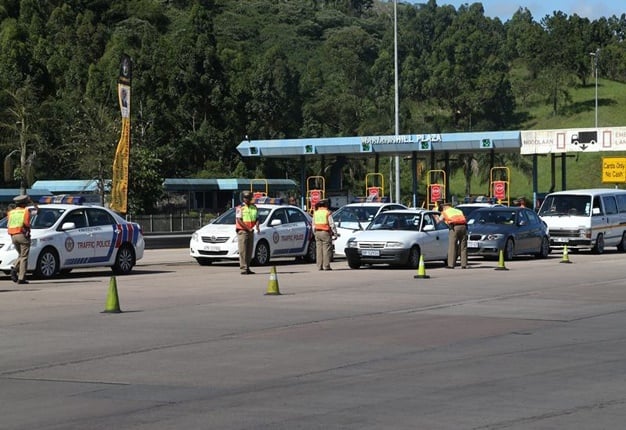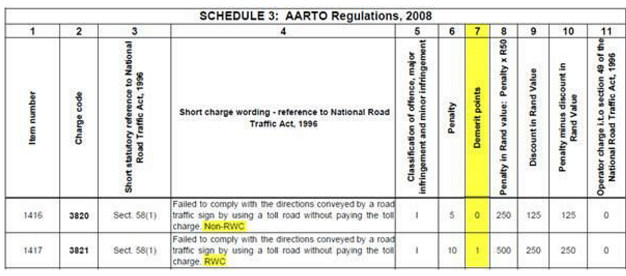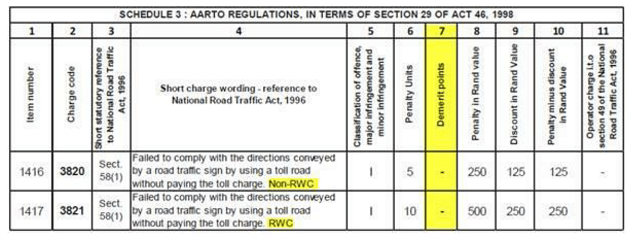Johannesburg - The Administrative Adjudication of Road Traffic Offences (Aarto) Bill moved a step closer to implementation in South Africa earlier in 2018. The bill was passed at the National Assembly in September 2017. In February 2018, Wheels24 reported that public hearings have been held in many provinces regarding traffic law changes.
One of the biggest amendments in the bill is the proposed driver demerit system. Justice Project South Africa said that the AARTO Act, and its associated AARTO Amendment Bill represents the "biggest change in the manner in which road traffic offences are prosecuted".
Big change for SA traffic law
JPSA chairman Howard Dembovsky said: "The media hype surrounding e-tolls and the AARTO Amendment Bill is somewhat misleading and needs to be clarified.
"While it is true to say that under the current AARTO Regulations, drivers of operator-class motor vehicles could have their driving licences suspended for failing to pay e-tolls, if the points-demerit system was in force now, this is not true with respect to drivers of around 91% of the registered self-propelled vehicles in South Africa."
What do you think of the AARTO Amendment Bill? Will the demerit system curb SA's horrendous road death toll? Email us
He adds: "Even though it has not been promulgated yet, a 7 December 2015 draft amendment to the AARTO Regulations indicated the intention of the Department of Transport to dispose of the single demerit-point applicable to charge code 3821 in Schedule 3 of the AARTO Regulations."
E-tolls
He said: "It is little more than a play on words to say that “not paying your e-tolls is not a traffic infringement” and “instead counts as disobeying a road sign"."
"The descriptive wording of charge codes 3820 and 3821 is 'Failed to comply with the directions conveyed by a road traffic sign by using a toll road without paying the toll charge'. Therefore the underlying infringement is driving on a toll road without paying the toll charge.
"Whether that toll charge is payable at an ordinary toll plaza or arises from passing under an e-toll gantry is irrelevant since the SANRAL Act, which is road traffic legislation, contemplates both means of toll collection and creates a road traffic offence for not complying.
What about recieving traffic notices bia sms, email?
JPSA said: "Perhaps part of the reason for this phenomenon is that serving infringement notices in person or by registered mail is a costly affair. The AARTO Amendment Bill seeks to introduce 'electronic service' which will save issuing authorities and the RTIA astronomical amounts of money. The Bill also seeks to remove the right of an alleged infringer to elect to be tried in court and in so doing, to be afforded their constitutional right to a fair trial. As a result, issuing authorities, including but not limited to SANRAL, would never have to prove their allegations, if the Bill is signed into law.
"JPSA maintains that, despite the AARTO Amendment Bill reportedly having been scrutinised and certified by the State Law Advisors, it will fail to pass constitutional and other legal muster if it is signed into law. The e-tolls issue is a separate, but interlinked issue and is yet to be resolved."
Infographic by: Law for All




